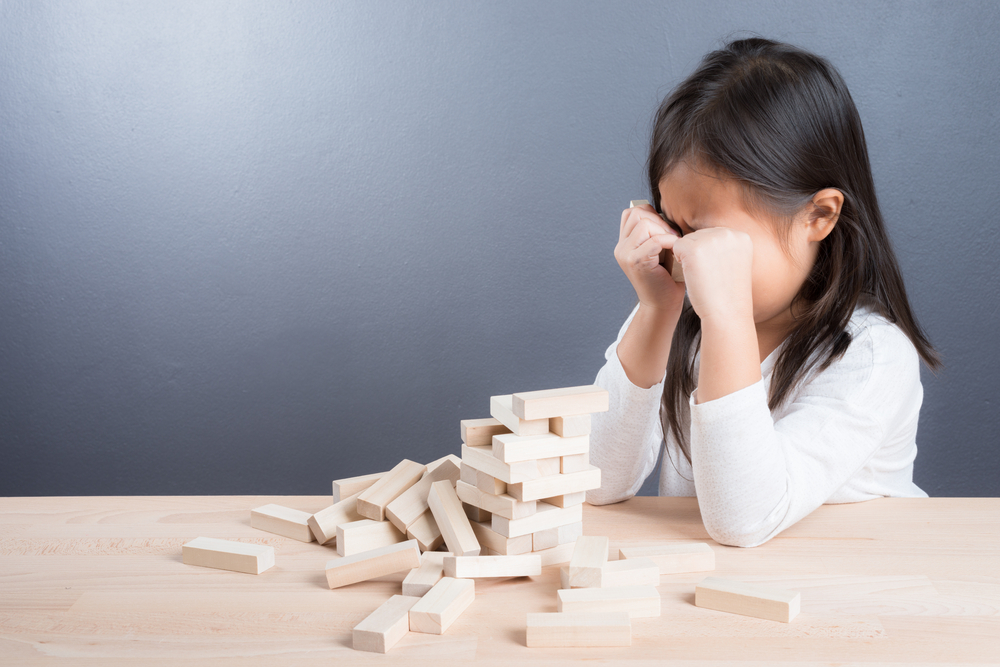Broken toys, tantrums, hitting, hiding important items – childhood destructive tendencies can take many forms. If your child is being self-destructive, you may feel like you have failed as a parent. In fact, they may simply be looking for a way to express how they feel.
Identifying Self-Destructive Behavior in Children
Every child has days where they are emotional, combative, or resistant to their parent’s guidance. But sometimes, that behavior goes beyond emotional outbursts and into the area of self-destructive behavior. They may throw things, hit people, break things, or hide objects. In older children and teens, self-destructive behavior can also include:
- Refusing to do homework
- Fighting at school
- Use of drugs or alcohol
- Suicide attempts
These physical acts of aggression are a form of self-destructive behavior. They are non-verbal attempts to communicate that your child is feeling disconnected or unseen, or that they can’t express what they are feeling.
Even Advanced Children Lack Self-Control
When a child acts out, it is often because their ability to exert self-control hasn’t developed as quickly as their ability to understand the world around them. There is a biological reason for this. Neurologically speaking, children’s frontal cortexes are slower to develop than other parts of their brain. This is the part of the brain that reflects cognitive development and self-control.
When a child lashes out, they are giving in to that same impulse that parents feel when they resist the urge to yell or act out of anger. Children have those same impulses, but they don’t yet have the emotional maturity to stop themselves from acting on those impulses. When they become more frequent or severe, self-destructive behaviors may also be a sign of anxiety, depression, or other mental health issues that benefit from professional treatment.
A Child Being Self-Destructive is Asking for Help Expressing Their Feelings
When a child’s destructive behavior seems to focus on a parent it may be because their emotions are also focused on that parent. However, it could also be because they are trying to get their parent’s help in stopping the behavior. A child engaging in self-destructive behaviors are not trying to make parents mad, but they may be trying to get a parent’s attention.
Self-destructive behaviors often stem from feelings that a child is disconnected from, not seen by, or in more extreme cases, not loved by their caregivers. The triggers for these feelings range from everyday incidents to traumatic events:
- Adjusting to part- or full-time schooling
- Having a caregiver parent go back to work
- Interruptions in regular parenting routines
- The birth or adoption of a younger sibling
- Divorce or separation of the child’s parents
- Incidents of abuse or neglect (by parents or others)
Parents: Don’t Blame Yourself – Get Help Helping Your Child
Self-destructive behavior in children can sometimes be triggering to their parents. If your child is acting out, you may feel ashamed that you can’t stop the tantrum, or get angry at them for the damage they cause. You may also blame yourself for not paying enough attention to them. Remember that sometimes self-destructive behaviors arise even when there are no significant life changes. Just because your child is struggling doesn’t mean you should give up or blame yourself.
No one is a perfect parent. No one can give their children attention every minute of the day – nor should you. Whether the emotion your child can’t express is big or small, you may need help learning techniques to guide them toward emotional maturity. By working with a child therapist, you can help your child identify and describe the anger, hurt, or pain they are feeling in less self-destructive ways, encouraging them on a path toward a healthier emotional expression.
David Stanislaw is a psychotherapist with over 30 years of experience. He helps children, teens and adults with anger management, self-destructive behaviors, and other mental health issues. Contact David Stanislaw to get help today.


 6 Ways to Accommodate Your Spouse’s Anxiety
6 Ways to Accommodate Your Spouse’s Anxiety How Long Does Therapy Take?
How Long Does Therapy Take? Helping Kids Cope with Trauma and PTSD
Helping Kids Cope with Trauma and PTSD